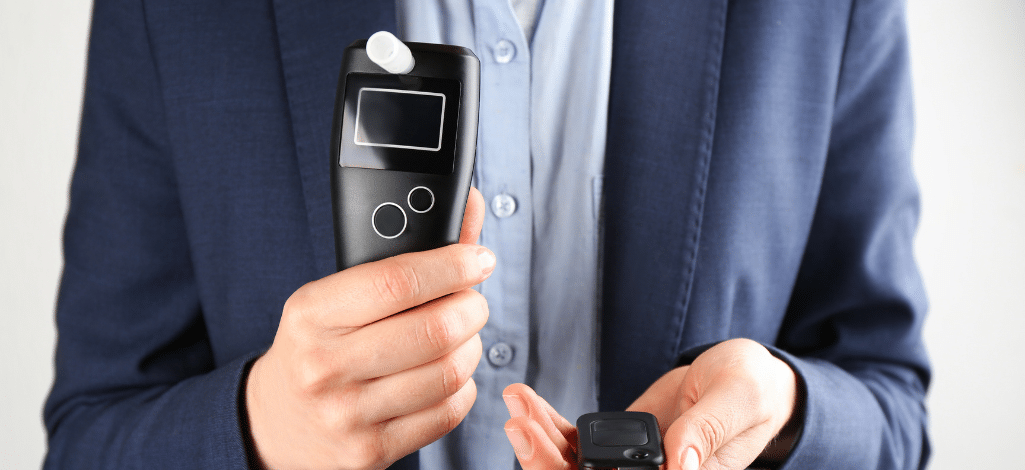Background
In early April 2017, forest trail patrollers reported that an intoxicated individual, Mr. Breault, was operating an all-terrain vehicle in the Val‑Bélair region of Quebec. While the officers were en route, they learned that he parked his vehicle and was about to leave the scene on foot.
When they caught up to Mr. Breault, the officers noticed his eyes were bloodshot and he smelled strongly of alcohol. He admitted to drinking one beer but denied driving the ATV. Notably, the officers did not have an approved screening device (“ASD”) in their possession and radioed for a colleague approximately 10-15 minutes away to bring one.
After requesting the ASD, an officer demanded that Mr. Breault provide a breath sample pursuant to section 254(2)(b) of the Criminal Code [now section 320.27(1)(b)], which was met by three consecutive refusals. During the interaction, Mr. Breault advised that he wished to retain and instruct counsel, which was denied by the officer. Ultimately Mr. Breault was arrested for refusing to comply with a demand to provide a breath sample.
Twenty minutes after the officers arrived, the ASD still had not been delivered. The officers cancelled their request, seized the ATV, and released Mr. Breault.
Section 320.27(1)(b) of the Criminal Code empowers peace officers to require a driver to immediately provide a breath sample by means of an ASD where there are reasonable grounds to suspect impaired driving. The main issue before the Supreme Court of Canada was whether the lack of an ASD at the scene met the immediacy requirement in the Criminal Code.
Previous Decisions
Ontario courts have previously ruled that an ASD did not need to be present for a valid breathalyzer demand. At trial, Judge Simard, relying on R v. Degiorgio, 2011 ONCA 527, held that the validity of the breathalyzer demand did not depend on the presence of an ASD at the scene. Mr. Breault’s appeal at the Quebec Superior Court was dismissed in light of R v. Piazza, 2018 QCCA 948 and R v. Petit, 2005 QCCA 687, decisions that came to the same conclusion.
The Quebec Court of Appeal, however, allowed the appeal, ruling that the word “forthwith” in section 254(2)(b) required officers to have immediate access to an ASD but that unusual circumstances could justify departing from this requirement. As the failure to immediately provide a sample constitutes the offence, the Court of Appeal found it was illogical that a driver could face criminal liability for refusing to comply with a demand that could not be met.
The Supreme Court’s Decision
Stops to provide breath samples are meant to be brief as drivers are subject to a detention. A driver’s right to counsel is limited by the immediacy requirement in these circumstances as they cannot consult counsel before complying with a breathalyzer test. Given the context of this provision, the Supreme Court ruled that there were no “unusual circumstances” that allowed for flexibility of the immediacy requirement in this case and upheld the acquittal.
As section 320.27(1)(b) also requires that a “proper” analysis be made, the Supreme Court reasoned that unusual circumstances could arise from concerns about the reliability of the result that would be generated, or issues with the use of the ASD itself.
While the Supreme Court did not set out an exhaustive list, the Court stated that the lack of an ASD at the scene, budgetary considerations, considerations of practical efficiency such as the time needed to train officers in ASD use, as well as concerns of administrative convenience do not constitute “unusual circumstances”. The Supreme Court further clarified that the immediacy requirement is not synonymous with ‘time reasonably necessary” to enable the officer to discharge their Criminal Code duty under section 254(2).
There have also been numerous previous decisions that have challenged the flexibility of the immediacy requirement. In R v. Bernshaw, 1995 CanLII 150 (SCC), the Supreme Court held that the word “forthwith” allowed a 15-minute waiting period in order to collect a reliable sample. In that case, there were evidentiary concerns around the accused drinking 15 minutes before the sample was taken, which may have falsely elevated the result. In R. v. Woods, 2005 SCC 42, a breath sample was inadmissible in evidence having been provided approximately 1 hour and 20 minutes after the demand. In R v. Grant, 1991 CanLII 38 (SCC), the Supreme Court declined to provide for a 30-minute delay for the delivery of an ASD to the scene.
Conclusion
While some limited flexibility is allowed, R v. Breault makes it clear that breathalyzer demands made pursuant to section 320(27)(1)(b) need to be done immediately with an ASD at the scene and officers should be prepared to do so before making a demand.
The Court declined to expand on specific unusual circumstances that would justify a longer period between the initial detention and the operational time it takes to take a breath sample, but previous decisions indicate that any delay without unusual circumstances related to the proper analysis of the sample risks exclusion of evidence.
If your require additional information or further assistance, please contact David McKnight and Naomi Krueger.




